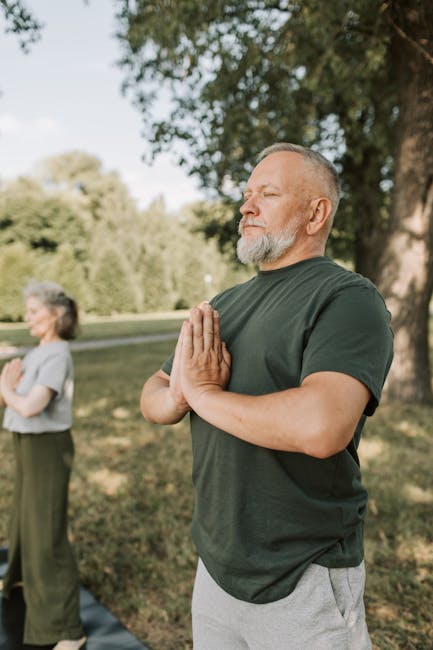Feeling cooped up and craving a breath of fresh air? You’re not alone. In our fast-paced, digital world, it’s easy to forget the simple pleasure of stepping outside. But here’s a little secret: nature is one of the best remedies for a hectic life. And I’m here to tell you why sticking around for this read could be the best decision you make today.
Key Takeaways
- Nature improves physical health by providing cleaner air and encouraging exercise.
- Mental health benefits include reducing depression symptoms and restoring mental energy.
- Emotional well-being is enhanced through happiness and stress relief found in natural settings.
- Sleep quality can be significantly improved with time spent outdoors.
- Social and community benefits arise from shared green spaces, especially noted during the pandemic.
- Urban settings also offer opportunities for connecting with nature, despite common misconceptions.
Introduction to the Benefits of Nature
Overview of the positive effects of spending time outdoors
Nature isn’t just a backdrop for picnics and hikes; it’s a vital component of our well-being. Studies have shown that spending time in natural environments can boost your physical and mental health in ways that a gym or a spa can’t match.
Relevance in the context of modern lifestyles
In a world where screen time often outweighs green time, reconnecting with the earth beneath our feet is more important than ever. It’s a chance to unplug, unwind, and understand the world from a broader perspective.

Physical Health Improvements
Breathing and Air Quality
Cleaner air in natural environments
When you step into a forest or a park, you’re not just seeing green—you’re breathing it in. Trees and plants act as natural air filters, removing pollutants and providing us with cleaner, fresher air.
Increased oxygen levels
More trees mean more oxygen. This simple equation leads to better breathing and can even enhance your lung capacity over time.
Exercise and Physical Activity
Natural environments as a motivation for exercise
Let’s face it, running on a treadmill staring at a wall doesn’t inspire much joy. But a jog through a leafy park or a mountain trail? That’s a whole different story. Nature calls to our innate desire to explore, making exercise feel less like a chore.
Overall health and well-being benefits
Regular outdoor activity can lead to a healthier heart, stronger muscles, and a lower risk of chronic diseases. It’s the kind of workout that benefits your entire body.
Immune Function Enhancement
Outdoor activities and anti-cancer proteins
Research suggests that spending time in forests can increase the production of proteins that have anti-cancer properties. It’s like your immune system is getting a natural boost just by being outside.
Protection Against Myopia
Daylight exposure and reduced risk in children
Kids who play outside aren’t just having fun; they’re also protecting their eyesight. Exposure to daylight can reduce the risk of developing myopia, or nearsightedness.

Mental Health and Emotional Well-being
Reduction of Depression Symptoms
Sunlight exposure
Sunlight is a natural mood enhancer. It helps your body produce vitamin D, which has been linked to improved mood and a decrease in depression symptoms.
Connection to something larger than oneself
Being in nature can give you a sense of perspective. It’s a reminder that we’re part of something bigger, which can be incredibly grounding when you’re feeling overwhelmed.
Mental Restoration
Break from urban cognitive fatigue
The constant buzz of city life can wear you down. Nature offers a respite, a place where your brain can relax and recharge.
Technology detox
Unplugging from our devices and stepping into the great outdoors can be a powerful way to reset our minds. It’s a chance to let go of digital stress and embrace the simplicity of nature.
Emotional Well-being
Happiness and contentment
There’s a reason why a walk in the park can lift your spirits. Nature has a unique way of promoting feelings of happiness and contentment.
Quality of Natural Environments
Importance for mental health
The quality of the natural environment we spend time in matters. Well-maintained parks and wilderness areas provide spaces for relaxation and stress relief, which is crucial for our mental health.
Spaces for relaxation and stress relief
Whether it’s a quiet corner of a garden or a vast expanse of wilderness, natural spaces offer a sanctuary from the pressures of daily life.

Sleep Quality Enhancement
Natural Settings and Sleep Patterns
Physical activity
The physical activity that often accompanies time spent outdoors can lead to better sleep. It’s a natural way to tire out your body and prepare for a restful night.
Stress level reduction
The calming effect of nature can also help lower stress levels, making it easier to fall asleep and stay asleep.

Social and Community Benefits
Role of Nature During the Pandemic
Mental health support
During the pandemic, outdoor spaces have become essential for mental health support. They’ve offered a safe way to stay active and connected with others, even at a distance.
Physical activity space
Parks and trails have served as vital venues for physical activity when gyms and sports facilities were closed, highlighting the importance of accessible outdoor areas.
Connection to Nature and Personal Happiness
Strong nature connection correlating with happiness
People who feel a strong connection to nature often report higher levels of personal happiness. It’s a relationship that feeds the soul.
Accessibility of Quality Nature Spaces
Importance of serene and green spaces
Everyone deserves access to serene and green spaces. They’re not just nice to have; they’re necessary for our well-being.
Disparity in access to high-quality natural environments
Unfortunately, not everyone has equal access to quality nature spaces. Addressing this disparity is crucial for the health and happiness of all communities.
Opportunities for Nature Connection in Urban Settings
Nature in Urban Environments
Presence and importance
Even in the concrete jungle, nature finds a way. Urban parks, rooftop gardens, and tree-lined streets all offer opportunities to connect with the natural world.
Variability in quality of spaces
The quality of these urban nature spaces can vary greatly. It’s important to advocate for and support the development of high-quality green spaces in all neighborhoods.

Conclusion
Summarization of the benefits
The benefits of spending time outdoors and connecting with nature are clear and numerous. From improving physical health to enhancing mental and emotional well-being, nature has a profound impact on our lives.
Encouragement for spending time outdoors
So, what are you waiting for? Step outside, take a deep breath, and let nature work its magic. Whether it’s a stroll in the park, a weekend camping trip, or simply sitting under a tree, make time for the great outdoors. It’s a simple, yet powerful way to improve your life in every aspect.
Embrace the Great Outdoors: Unveiling Nature’s Gifts – Your FAQ Guide
Why is spending time outdoors beneficial to our health?
Spending time outdoors is incredibly beneficial to our health because it exposes us to fresh air, natural light, and physical activity, all of which are crucial for our well-being. Natural light helps regulate our circadian rhythms, improving sleep quality, while fresh air can enhance respiratory health. Outdoor activities often involve exercise that boosts cardiovascular health, strengthens muscles, and improves flexibility. Moreover, being in nature can reduce stress, anxiety, and depression, leading to better mental health.
Can outdoor activities improve mental health?
Yes, outdoor activities can significantly improve mental health. Nature has a calming effect on the mind, helping to reduce stress, anxiety, and symptoms of depression. Activities like hiking, gardening, or simply walking in a park can increase serotonin levels, which is the hormone associated with happiness and well-being. Additionally, being outdoors can improve focus, creativity, and cognitive function, making it a powerful tool for mental health maintenance.
How does connecting with nature impact children’s development?
Connecting with nature has a profound impact on children’s development. It encourages curiosity, creativity, and problem-solving skills through unstructured play and exploration. Outdoor experiences can also foster a sense of independence and confidence as children learn to navigate and interact with their environment. Physically, it promotes a healthy lifestyle, reducing the risk of obesity and associated health issues. Moreover, it instills an appreciation for the environment, which can lead to lifelong conservation values.
What are some simple ways to incorporate more outdoor time into a busy schedule?
Incorporating outdoor time into a busy schedule can be as simple as taking short walks during breaks, eating meals outside when possible, or choosing outdoor activities for leisure time, such as cycling or picnicking. Even small changes like taking the stairs instead of the elevator or parking further away from your destination to add a brief walk can make a difference. For those with a tight schedule, combining outdoor time with social activities or meetings can be both productive and refreshing.
Does exposure to nature have any benefits for the immune system?
Exposure to nature can boost the immune system in several ways. Being outdoors often means being more physically active, which naturally strengthens the immune system. Additionally, plants emit phytoncides, which are chemicals that have been shown to increase the activity of natural killer cells in our bodies, helping to fight off infections and diseases. Regular exposure to a diverse range of microorganisms in the natural environment can also improve our microbiome, which plays a crucial role in immune health.
Can spending time in nature help with sleep quality?
Spending time in nature can indeed help improve sleep quality. Natural sunlight helps regulate our body’s production of melatonin, the hormone responsible for sleep. Exposure to daylight, especially in the morning, can help synchronize our circadian rhythms, leading to more consistent and restful sleep patterns. Additionally, the physical activity often associated with being outdoors can contribute to better sleep by reducing stress and anxiety.
Are there any psychological benefits to spending time in natural settings?
Natural settings offer numerous psychological benefits. They provide an environment for mindfulness and meditation, which can lead to reduced levels of stress and increased mental clarity. The tranquility of nature allows for a break from the overstimulation of urban environments, offering a sense of peace and a place for reflection. Furthermore, the beauty and vastness of natural landscapes can evoke feelings of awe and wonder, which are linked to increased happiness and a sense of purpose.
How does outdoor time affect our social relationships?
Outdoor time can positively affect our social relationships by providing a shared space for interaction, play, and communication. It encourages cooperative activities like team sports or group hikes, which can strengthen bonds and improve communication skills. Nature’s neutral and relaxed setting can also be less intimidating for social gatherings, making it easier for individuals to connect on a deeper level. Additionally, shared experiences in nature can create lasting memories and foster a sense of community among participants.
What role does nature play in personal growth and self-discovery?
Nature plays a significant role in personal growth and self-discovery by offering a space for introspection and challenge. The solitude and serenity of natural environments can prompt individuals to reflect on their life, goals, and values. Facing the physical challenges of outdoor activities can lead to increased self-esteem and a sense of accomplishment. Moreover, the unpredictability of nature often requires adaptability and problem-solving, which can contribute to personal development.
Is there a connection between nature and creativity?
There is indeed a connection between nature and creativity. Natural environments stimulate the senses and can inspire new ideas and perspectives. The diversity and beauty of the outdoors can spark imagination and foster artistic expression. Moreover, the restorative effect of nature can help clear the mind, allowing for greater focus and the flow of creative thought. Studies have shown that spending time in nature can enhance problem-solving skills and boost creativity in various domains.



